There is no provision for officially recording a person’s ethnicity or national origin
Received: 14.10.2025
 Attachments: 3
Attachments: 3The response of the Ministry of Justice of Ukraine fully reproduces the official position of the State Migration Service, confirming that Ukrainian legislation does not provide for the legal recording of a citizen’s nationality in any documents, including passports, birth certificates, and civil status records.
The Ministry explicitly states that there is no state accounting of ethnic affiliation and refers to the Constitution of Ukraine and international non-discrimination standards, thereby substituting them for the right to ethnic identity recognized by international law.
However, behind this formal “equality” lies a deliberate and legally codified mechanism for excluding the titular nation — ethnic Ukrainians — from the category of subjects of collective rights.
Law No. 1616-IX “On Indigenous Peoples of Ukraine” (2021) limits the recognition of collective rights exclusively to three groups — Crimean Tatars, Karaites, and Krymchaks — thereby deliberately excluding both the titular Ukrainian ethnocultural group and ... Read more ⇢
Ukraine denies the registration of nationality but uses it for ethnic segregation
Received: 14.10.2025
 Attachments: 1
Attachments: 1The inquiry raised the issue of whether Ukrainian legislation provides a formalized mechanism for determining and officially confirming a citizen’s national (ethnic) affiliation, as well as whether a state system for recording such information exists.
Particular attention was given to the fact that, in the absence of an official document or a codified procedure, self-identification (e.g., as “Ukrainian,” “Russian,” or “Belarusian”) cannot be considered legally verifiable and, therefore, does not carry legal consequences.
In its official response, theState Migration Service of Ukraine stated that national passports — regardless of their format (paper or ID card) — do not contain a field for “nationality”.
It also confirmed that no centralized system exists at the level of central authorities to record citizens’ national affiliation.
The state does not maintain a registry or any institutional means of certifying ethnocultural identity.
... Read more ⇢
How Ukraine’s Mobilization Tactics Became a Blueprint for ICE’s Brutal Detention Practices
What ICE is doing in the United States today has already been tested and fully implemented in Ukraine — in its most extreme, brutalized form — by the Territorial Centers of Recruitment and Social Support (TCR and SS), official government bodies under the Ministry of Defense responsible for executing the nationwide mobilization process.
These centers are tasked with identifying, detaining, and forcibly conscripting civilians into the military — often through violent means and without legal safeguards.
For the past four years, these institutions have operated as militarized enforcement units, executing forced detentions, abductions, imprisonment without trial, and violent delivery of civilians — often in handcuffs — directly to the front lines.
Numerous reports and video evidence confirm killings during detention, torture, suicides in custody, and wounded civilians being returned to combat without medical evaluation.
This is not a breakdown of the system — it is the system. A state-run apparatus functioning with the direct financial support of international donors
Ukrainian legislation does not provide for amendments to the Declaration of State Sovereignty
Received: 14.10.2025
 Attachments: 2
Attachments: 2The request was submitted in order to obtain an official clarification regarding the following questions: who, in accordance with the current legislation of Ukraine, has the authority to make amendments to the Declaration of State Sovereignty of Ukraine dated July 16, 1990, and which state authority or official holds the power to repeal or declare this Declaration invalid.
The purpose of the inquiry was to determine whether the Declaration is subject to revision following the entry into force of the Law of Ukraine No. 2215-IX “On the De-Sovietization of Ukrainian Legislation,” which is aimed at eliminating from the legal field any norms, terminology, or references originating from the Soviet period.
Special attention in the request was paid to the fact that the text of the 1990 Declaration repeatedly mentions the Ukrainian Soviet Socialist Republic (Ukrainian SSR) in a positive c ... Read more ⇢
Declaration of State Sovereignty of Ukraine — archived official copy of the original document
Received: 14.10.2025
 Attachments: 10
Attachments: 10The official response from the Central State Archive of the Highest Authorities of Ukraine, dated September 1, 2025, confirms the existence and validity of the Declaration of State Sovereignty of Ukraine No. 55-XII of July 16, 1990, as an archival document preserved in the archive’s holdings.
The attached copy contains the full authentic text of the Declaration, which proclaims Ukraine’s state sovereignty based on the right of the Ukrainian nation to self-determination, the primacy of the Constitution of the Ukrainian SSR, territorial supremacy, exclusive rights to natural resources and cultural heritage, as well as the aspiration for international recognition.
At the same time, it should be noted that the current Law of Ukraine No. 2215-IX “On the Desovietization of Ukrainian Legislation”, adopted in April 2022, establishes in Section II, Paragraph 2, that:
“On the territory of Ukraine, acts of the state authorities and state administration bodies of the USSR and the Ukrainian SSR (Ukrainian Soviet Socialist Republic) shall not apply, except for ... Read more ⇢
Writing “Russia”, “Putin”, “RF” in lowercase nullifies Ukraine’s legal claims
Received: 14.10.2025
 Attachments: 2
Attachments: 2The Ministry of Justice of Ukraine, in its official response from July 2025, confirmed that writing the words “Putin,” “Russia,” “RF,” or “Russian Federation” with a capital letter in the public sphere — including on social media or in official documents — does not constitute either an administrative or criminal offense.
The Ministry explicitly stated that current Ukrainian legislation does not provide for any legal liability for using these words with an initial capital letter. This means that any sanctions imposed on citizens on this basis cannot be considered lawful and must be subject to immediate legal challenge.
The inquiry was submitted against the backdrop of a large-scale internal campaign initiated by state authorities, officials, lawyers, and propagandist activists, who persistently promote the practice of writing “Russia,” “RF,” and “Putin” exclusively in lowercase letters.
This practice is publicly justified by the claim that an aggressor state does not deserve to be written with a capital letter. However, from a legal standpoint, such a position is not only profession ... Read more ⇢
Procurement or Coercion? The Legal Implications of Ukraine’s Military Recruitment Practices
Received: 14.10.2025
 Attachments: 1
Attachments: 1The request was submitted in order to obtain an official clarification of the legal meaning of the term “recruitment,” since this word is extremely widespread in the public sphere: it appears in advertisements, is distributed through SMS messages, and is used in the establishment of new “recruitment centers” across Ukraine offering civilians to join the Armed Forces of Ukraine.
It should also be noted that there exists the Order of the Ministry of Defense of Ukraine dated October 27, 2023, No. 637, “On the Approval of the Concept of Military Personnel Policy in the System of the Ministry of Defense of Ukraine for the Period Until 2028,” in which the term “recruitment” is defined as one of the tools of personnel policy.
In its official response, the Ministry of Defense of Ukraine explicitly stated:
“Recruitment is the targeted search and procurement of personnel for staffing the Armed Forces of Ukraine with servicemen of appropriate quality and quantity.”
It is pr ... Read more ⇢
No Legislative Basis for Punishment under Martial Law
Received: 14.10.2025
 Attachments: 3
Attachments: 3The Ministry of Justice of Ukraine provided an official response to an information request submitted in July 2024 concerning the legal grounds for holding individuals accountable for violating curfew restrictions during martial law.
The response states that neither the current Code of Ukraine on Administrative Offenses nor the Criminal Code of Ukraine provides for any liability for violating curfew. This means that, at the legislative level, there is no administrative or criminal provision establishing legal consequences for being outside during curfew hours.
Additionally, it is emphasized that state and local authorities, as well as their officials, are obligated to act strictly within the limits of their powers and in accordance with procedures defined by the Constitution and laws of Ukraine. This confirms that it is unlawful to impose sanctions on citizens based solely on orders from military command or local administrations if such measures are not grounded in specific legal provisions.
The statement that the Ministry of Justice refuses to classify the provided information as public and instead invokes the status of legal consultation further confirms that no establish ... Read more ⇢
Absence of Legal Status for “Recruits” under Geneva Conventions and NATO Standards
Received: 14.10.2025
 Attachments: 2
Attachments: 2The request was submitted in order to obtain legal clarification on the term “recruit” in the context of Ukrainian legislation, international humanitarian law, and the current practice of the armed forces.
The questions concerned both the internal status of this term (its usage in Ukrainian legal acts and Armed Forces statutes) and its correlation with international standards (UN documents, the Geneva Conventions, NATO practices).
Specific issues included the duration of service, correspondence with military ranks and positions, and the legal distinction between a “recruit” and a full-fledged servicemember.
The analysis of the response provided allows for the following conclusions:
-
The term “recruit” does indeed appear in Ukrainian normative documents, particularly in the Regulation on the Military Service of Citizens of Ukraine in the Armed Forces, as well as in the List of Staff Positions approved by Ministry of Defense Order No. 317 of 07.09.2020. However, its legal status remains undefined, as
Ukraine Confirms Validity of 1991 USSR Emergency Resolution
Received: 14.10.2025
 Attachments: 3
Attachments: 3The request was submitted to obtain clarification on the meaning of the term “current version” (чинна редакція) of a normative legal act on the website zakon.rada.gov.ua.
The Ministry of Justice of Ukraine, in its official response, confirmed that the resolution of the State Committee for the State of Emergency in the USSR dated August 19, 1991, No. 1, remains in force within the legal framework of Ukraine, holding the status of a “current version” (чинна редакція).
This means that the document, adopted by a body of the USSR, has not been repealed or annulled by Ukrainian authorities and is still considered an active normative legal act.
The Ministry’s explanation emphasized that the term “current version” refers to the valid text of a normative act, taking into account all official amendments and additions at the time of the request. In the case of this resolution, no changes have been made, and therefore, it continues to have legal effect in its original form.
... Read more ⇢
Ukrainian Language Institute confirms: “civilian” means state subject, not member of a people
Received: 14.10.2025
 Attachments: 2
Attachments: 2The Institute of the Ukrainian Language, in its response dated April 4, 2024, confirmed that the word цивільний(“civil”) in the Ukrainian language is classified as a loanword, with the primary meanings of “non-military” and “civilian.” Etymologically, it derives from the Latin civilis, meaning “civil,” “state-related,” or “civilized,” which in turn comes from civis — “citizen.”
Importantly, the term цивільний in Ukrainian is interpreted as referring to a person’s administrative status as a citizen, rather than to their ethnic or national belonging. The Institute also lists the older Slavic root съѧмия (meaning “family,” “household,” or “kin”), which points to a concept more closely associated with ethnic or cultural affiliation. This demonstrates a clear linguistic distinction between “civilian” (state-related status) and “familial” or “ethnic” identity in historical usage.
The comparative linguistic parallels from other languages (Slavic, Baltic, Germanic, etc.) also show that the concept of “civil” is generally tied to residency, settlement, or ... Read more ⇢
The Ministry of Defense of Ukraine stated that it does not have an official legal definition for the term “Motherland”
Received: 14.10.2025
 Attachments: 2
Attachments: 2In its official response, the Ministry of Defense of Ukraine stated that it does not possess a normative definition of the term “Motherland” and is not the custodian of information on this matter. At the same time, the ministry claims that this term is used in the Constitution of Ukraine and several laws as a “commonly understood” concept that allegedly does not require further interpretation.
However, such a position is not only legally vulnerable but also exposes a deep contradiction within Ukraine’s legal system. The term “Motherland” does appear in Article 65 of the Constitution, which states: “Defense of the Motherland, independence, and territorial integrity of Ukraine is the duty of Ukrainian citizens.” Yet, Article 17 of the same Constitution declares that the defense of Ukraine’s sovereignty and independence is the responsibility of “the people of Ukraine.”
There is no clear legal connection in Ukrainian law between “citizen” and “people,” especially since the adoption of Law No. 1616-IX “On Indigenous Peoples of Ukraine” and Law No. 2827-IX “On National Minorities,&rdq ... Read more ⇢
Demarcation of the state border between Ukraine, Russia, Belarus, and Moldova remains legally unresolved
Received: 14.10.2025
 Attachments: 2
Attachments: 2The official letter provided by the Ministry of Foreign Affairs of Ukraine contains contradictory statements regarding the status of the demarcation of the state border with the Russian Federation, the Republic of Moldova, and the Republic of Belarus.
On the first page of the letter, the MFA clearly states:
“The demarcation of the state border between Ukraine and the Russian Federation has been completed on the basis of the Treaty between Ukraine and the Russian Federation on the State Border dated January 28, 2003, ratified by the Law of Ukraine of April 20, 2004, No. 1681-IV.”
This means that the Ukrainian side officially recognizes the demarcation with the Russian Federation as completed and refers to a valid international treaty that legally establishes the border between the two states. The document also confirms the completion of demarcation with Moldova and Romania.
However, on the second page of the same letter, the following contradictory statement appears:
... Read more ⇢
Absence of the Term “Blackout” in Ukrainian Legislation Confirmed by Ministry of Energy
Received: 14.10.2025
 Attachments: 1
Attachments: 1The Ministry of Energy has officially confirmed that the term “blackout” is absent from the current legislation and regulatory legal acts of Ukraine.
This response was provided in relation to a public information request regarding the legal meaning and official definition of the term, which is widely used in media, official statements, and public discourse in the context of mass electricity outages.
According to the Law of Ukraine “On Access to Public Information” (No. 2939-VI), the ministry is not authorized to provide legal interpretations or create new information. It also clarified that it is not the holder of public information related to this term, since “blackout” is not legally defined.
Thus, although the term is actively used in the public domain, it lacks any legal or normative basis, raising questions about the legitimacy of its application in official documents, informational campaigns, and actions by state authorities.
This response confirms the existence of a legal vacuum around a concept that may be used to justify restrictive or emergency measures without proper legal ... Read more ⇢
The term “military aggression” is absent in the Central Legal Department of the General Staff of the Armed Forces of Ukraine
Received: 14.10.2025
 Attachments: 3
Attachments: 3In the official response provided by the Central Legal Department of the General Staff of the Armed Forces of Ukraine (No. 316/1553 dated April 5, 2024), it is explicitly stated that this body has no regulatory or legal acts containing a definition of the term “військова агресія” (“military aggression”).
Thus, despite the repeated use of this expression in the decrees of the President of Ukraine — in particular, in the Decree on the Introduction of Martial Law (No. 64/2022) and the Decree on General Mobilization (No. 69/2022), where the war is described as “military aggression of the Russian Federation against Ukraine” — the term itself has no normative definition within the Ukrainian legal framework.
Moreover, the Central Legal Department directly refers to Article 1 of the Law of Ukraine “On the Defense of Ukraine,” which employs the term “armed aggression” rather than “military aggression.”
... Read more ⇢
Kursk and Belgorod Were Never Part of Ukrainian Statehood — UINP Response
Received: 14.10.2025
 Attachments: 2
Attachments: 2The response from the Ukrainian Institute of National Memory was provided in reply to the official request dated September 16, 2024.
The purpose of the inquiry was to determine whether the territories of the present-day Kursk and Belgorod regions were ever part of Ukrainian state formations in the past.
The request was prompted by statements circulating in the public sphere claiming that these regions hold a supposedly “Ukrainian” status and, as a result, attempting to legitimize the presence of Ukrainian military personnel on those territories.
In its response, the Institute clearly states that neither the Kursk Region nor the Belgorod Region, as separate administrative-territorial units, have ever been part of any Ukrainian state entity.
However, it emphasizes that the southern areas of both regions — which are currently part of the Russian Federation — do belong to a historical and geographic region known as Slobidska Ukraine (Slobozhanshchyna).
... Read more ⇢
Historical Distribution of Ukrainian Ethnic Lands in the 20th Century - Official Response from the Ukrainian Institute of National Memory
Received: 14.10.2025
 Attachments: 2
Attachments: 2The response provided by the Ukrainian Institute of National Memory was issued in reply to an inquiry dated August 22, 2024, concerning the state affiliation of Ukrainian ethnic lands in the 20th century.
The document presents data for two historical periods: January 1, 1932, and January 1, 1978.
The response consists of two parts: the main factual-reference content and a procedural clarification regarding the Institute’s own institutional mandate.
The reply is structured around two historical snapshots—January 1, 1932, and January 1, 1978—and outlines which territories inhabited by Ukrainians were part of various states within the present-day administrative borders of Ukraine.
The first period—1932—covers the composition of the Ukrainian Soviet Socialist Republic as a union republic within the USSR.
The listed territories correspond to modern-day Ukrainian regions: Khmelnytskyi, Zhytomyr, Vinnytsia, Kyiv, Cherkasy, Chernihiv, Sumy, Poltava, and Kirovohrad regions, as well as parts of the Odesa, Mykolaiv, Kharkiv, Luhansk, Done ... Read more ⇢
Fragmented Homeland - Historical Ukrainian Lands Under Foreign Rule (1919–1937)
Received: 14.10.2025
 Attachments: 2
Attachments: 2The response provided by the Ukrainian Institute of National Remembrance is an official reference document compiled in response to a request dated September 16, 2024.
The subject of the request was to clarify which historical territories inhabited by Ukrainians were part of various states and republics in the first half of the 20th century.
The document is structured around two time periods: 1919 and 1929–1937.
1. Period up to March 30, 1919
The Ukrainian Institute of National Remembrance explains that during this period, it is not possible to definitively determine the state affiliation of most historical Ukrainian territories, as active military operations were ongoing. Control over territories shifted frequently among different armies and political formations.
Nevertheless, the response provides a detailed list of territories historically inhabited by Ukrainians, along with information about which entities controlled them at the time:
The indigenous peoples of Ukraine are Crimean Tatars, Karaites, and Krymchaks — Ukrainians are not included
Received: 14.10.2025
 Attachments: 2
Attachments: 2The response from the Ministry of Culture of Ukraine, received as part of an official request, confirms that only three ethnocultural groups—Karaites, Krymchaks, and Crimean Tatars—have been recognized as indigenous peoples of Ukraine.
This selection is formally justified by the legal criterion that indigenous peoples must lack their own statehood outside Ukraine.
However, the core of the problem goes much deeper.
The issue is not that ethnic Ukrainians supposedly do not meet the legal definition of indigenous peoples due to having their own nation-state.
The issue is that neither they nor other autochthonous ethnocultural communities—such as the Boykos, Lemkos, Hutsuls, Volynians, Podolians, Slobozhans, Polissians, and others who have lived on Ukrainian land for centuries—have been granted any legal status whatsoever.
They are not recognized as indigenous, not protected as national minorities, and not acknowledged as a collective subject with the right to self-determination or territorial ownership.
... Read more ⇢
The Difference Between the Russian Language and the Russian State Does Not Exist in the Ukrainian Language
Received: 14.10.2025
 Attachments: 2
Attachments: 2The official reply from Ukraine’s Ministry of Culture reveals a fundamental linguistic issue: the Ukrainian language does not differentiate between the Russian words “russkiy” (ethnic Russian or Russian-language) and “rossiyskiy” (related to the Russian Federation as a state).
In the Russian language, these two terms have completely different meanings.
“Russkiy” refers to the Russian people as an ethnic group, to cultural identity, or to the language itself — for example, russkiy yazyk (Russian language), russkaya kul’tura (Russian culture), russkiy narod (the Russian people).
“Rossiyskiy” refers to the modern political-legal identity of the Russian Federation — such as rossiyskiy pasport (passport of the Russian Federation), rossiyskaya armiya (Russian state army), or rossiyskoye zakonodatel’stvo(legislation of the Russian Federation).
So in Russian, a person can clearly distinguish between:
The current law on military ranks has not been entered into the Unified State Register of Regulatory Legal Acts of Ukraine
Received: 14.10.2025
 Attachments: 1
Attachments: 1The request to the Ministry of Justice of Ukraine was submitted in order to clarify the legal status of the law regulating military ranks in Ukraine. The basis for the request was Part Six of Article 92 of the Constitution of Ukraine, which explicitly states that military ranks, diplomatic ranks, and other special titles must be established exclusively by laws of Ukraine.
This means that the procedure for establishing such ranks cannot be regulated by decrees, resolutions, or internal orders of ministries — only by a law officially adopted by the Verkhovna Rada and duly promulgated.
In the official response from the Ministry of Justice dated August 7, 2025 (incoming ref. № ПІ-М-3264), it is stated that the so-called law “on military ranks” was not submitted for inclusion in the Unified State Register of Regulatory Legal Acts. According to the Instruction of the Ministry of Justice on the procedure for inclusion of regulatory legal acts (NPA) into the Register, approved by Order № 57/5 of June 26, 2002, such a procedure is mandatory for all laws that are subject to application. Therefore, the Ministry of Justice indicates the absence of the final registratio ... Read more ⇢
The Law on the State Tax Service of Ukraine has lost its force
Received: 14.10.2025
 Attachments: 1
Attachments: 1The official response from the Ministry of Justice of Ukraine dated May 30, 2025 (ref. No. PP-M-2162) confirms that the Law of Ukraine “On the State Tax Service” No. 509-XII of December 4, 1990, has lost its legal force. This repeal occurred within the framework of the administrative reform established by the Law of Ukraine “On Amendments to the Tax Code of Ukraine and Certain Legislative Acts of Ukraine on Improving Certain Provisions” No. 5083-VI dated July 5, 2012.
The relevant changes were officially entered into the Unified State Register of Regulatory Legal Acts on August 3, 2012, under registration code 62966/2012.
It is important to understand that the repeal of the 1990 law does not imply the cancellation of the tax system or exemption of citizens from their obligation to pay taxes. Since January 1, 2011, the Tax Code of Ukraine has been in effect, adopted by the Law of Ukraine “On the Tax Code of Ukraine” No. 2755-VI of December 2, 2010, which serves as the main regulatory act governing tax relations in the country.
In additi ... Read more ⇢
The Law of Ukraine dated June 25, 1991, No. 1251-XII “On the Taxation System” has lost its force
Received: 14.10.2025
 Attachments: 1
Attachments: 1The official response from the Ministry of Justice of Ukraine confirms that the Law of Ukraine “On the State Tax Service” No. 509-XII of December 4, 1990, has been repealed. This occurred as part of the administrative reform codified in the Law of Ukraine “On Amendments to the Tax Code of Ukraine and Certain Legislative Acts of Ukraine on the Improvement of Certain Provisions” No. 5083-VI of July 5, 2012.
The corresponding changes were registered in the Unified State Register of Regulatory Legal Acts on August 3, 2012, under registration code 62966/2012.
However, the repeal of the aforementioned law does not mean the abolition of the tax system itself or the obligation of citizens to pay taxes.
Since January 1, 2011, the Tax Code of Ukraine has been in effect, adopted by the Law of Ukraine “On the Tax Code of Ukraine” No. 2755-VI of December 2, 2010. It has become the main legislative act regulating tax relations in the country.
The tax s ... Read more ⇢
Official Confirmation That the Great Emblem of Ukraine Is Not Legally Adopted
Received: 14.10.2025
 Attachments: 1
Attachments: 1In the official reply issued by the Ministry of Justice of Ukraine, issued under the Law of Ukraine “On Access to Public Information” No. 2939-VI of January 13, 2011, explicitly states that no law establishing the Great State Emblem of Ukraine has been adopted. This means that, at the legislative level, neither its official status nor the procedure for its use has been legally defined.
At the same time, Article 20 of the Constitution of Ukraine clearly stipulates that the Great State Emblem of Ukraine must be established by a law adopted by no less than two-thirds of the constitutional composition of the Verkhovna Rada.
Such a law has never been enacted.
The only currently valid regulatory act concerning the state symbols of Ukraine remains the Resolution of the Verkhovna Rada of Ukraine “On the State Emblem of Ukraine” No. 2137-XII dated February 19, 1992, which approved only the Small State Emblem — a golden trident on a blue shield.
Although this resolution does not have the force of law, it continues to be applied and has not been repealed or replaced by another act.
... Read more ⇢
Who Are the Ukrainian People in Legal Terms
Received: 14.10.2025
 Attachments: 2
Attachments: 2The Ministry of Justice of Ukraine, in its official response issued in 2025, confirmed that the only place in the Constitution where the term “Ukrainian people” is explicitly defined is in the preamble. There, the “Ukrainian people” is described as “the citizens of Ukraine of all nationalities.”
However, the Ministry did not provide a clear legal definition of the term — instead, it referred to Article 5 of the Constitution, which mentions “the people” as the bearer of sovereignty but does not specify who exactly that entails. Moreover, the Ministry used the phrase “in our opinion,” thereby admitting that its conclusion is based solely on interpretation rather than on any clearly defined legal norm.
This reinforces the existence of legal uncertainty and competition in the interpretation of the concept of “people” within the Ukrainian legal system.
The key issue is that, according to Article 38 of the Law of Ukraine “On Law-Making Activity” (No. 3354-IX), the preamble of a legal act does not contain l ... Read more ⇢
Ukrainian Police IDs Lack Legal Force: Ministry of Justice Confirms Order Was Never Registered
Received: 14.10.2025
 Attachments: 1
Attachments: 1The official response from the Ministry of Justice of Ukraine dated October 9, 2025, contains a critical clarification: Order No. 347 of the Ministry of Internal Affairs, dated April 26, 2017 — which regulates the procedure for the production and issuance of service IDs to officers of the National Police — was never submitted for state registration and, accordingly, was never registered by the Ministry of Justice. This means that the mentioned normative legal act has no legal force.
According to current legislation — particularly the Regulation on State Registration of Normative Legal Acts, approved by Cabinet of Ministers Resolution No. 731 dated December 28, 1992 — all acts issued by ministries and central executive authorities that affect the rights, freedoms, or responsibilities of citizens must undergo mandatory state registration. Without such registration, a normative legal act cannot be applied and is considered legally null and void.
Therefore, the police are currently using service IDs that were issued based on an order which lacks proper legal authority. These documents cannot be considered legitimate identification confirming state authority ... Read more ⇢
Clarification from the Armed Forces of Ukraine: TRC & SS Cannot Legally Declare Civilians “Wanted,” but Coordinate with Police for Detentions and Forced Delivery
Received: 14.10.2025
 Attachments: 2
Attachments: 2The official response provided by the Personnel Directorate of the Ukrainian Ground Forces Command on June 24, 2025, constitutes a direct acknowledgment of a violation of Ukrainian law. In this letter, the Ministry of Defense of Ukraine formally confirms that Territorial Recruitment Center and Social Support Centers (TRC & SS) — the Ukrainian abbreviation for “Terytorialni tsentry komplektuvannia ta sotsialnoi pidtrymky” (TCK ta SP - on ukrainian) — donot have any legal authority to place civilians on official “wanted” lists.
However, the same document admits that TRC & SS routinely contact the National Police with requests to detain and forcibly deliver civilians — allegedly for violations of military registration rules — to the nearest military enlistment office. In practice, this means that the Ministry is describing a system of enforced tracking and detention that operates not through judicial orders or legal proceedings, but via internal administrative instructions within the military structure.
This practice const ... Read more ⇢
What Is “The People of Ukraine”? Ministry of Justice Confirms Preamble Has No Legal Force
Received: 14.10.2025
 Attachments: 2
Attachments: 2The document presented above is an official response from the Ministry of Justice of Ukraine, which explains the legal nature of the preamble as a component of a normative legal act. The letter states that the preamble does not contain legal norms, does not have independent legal force, and cannot be regarded as a norm of direct effect.
The preamble is the introductory part of any law or constitution. It outlines general goals, historical context, motives, and value orientations on which the act is based. However, from a legal standpoint, the preamble does not contain enforceable legal norms. In contrast to the articles of a law, the preamble does not establish legal obligations, does not create rights, and cannot serve as a basis for court decisions or actions by state authorities.
The Ministry of Justice explicitly emphasizes that the preamble cannot carry legal norms, is not a source of direct legal effect, and does not have independent legal force.
What does this mean in practice?
In the Constitution of Ukraine, the preamble is the only place where the phrase “the people of Ukraine — the citizens of Ukraine of all nationalities” is mentioned. How ... Read more ⇢
Official Statement from the Ministry of Defense of Ukraine Confirming That the Term “Draft Dodger” Has No Legal Definition or Status in Ukrainian Law
Received: 14.10.2025
 Attachments: 1
Attachments: 1This official response from the Legal Department of the Ministry of Defense of Ukraine was issued following a public inquiry requesting clarification on the use of the term “ukhyliant” (translated as “draft dodger” or “evader”) — a word widely used in Ukrainian media and public discourse to stigmatize citizens allegedly avoiding mobilization.
The purpose of the inquiry was to determine whether this term has any official or legal definition in Ukrainian legislation and whether its usage in public communication by state officials or media outlets has any lawful basis.
In its official reply, the Ministry of Defense explicitly confirmed that the term “ukhyliant” is absent from Ukrainian legislation and is not used by the Ministry in any official documents or normative acts.
The letter also clarifies that such terminology does not fall under the scope of “public information” as defined by law, since it has no legal foundation or codified meaning within the Ukrainian legal system. Therefore, its use in public rhetoric, including by go ... Read more ⇢
Official Clarification from the National Police of Ukraine on the Lack of Legal Authority to Enforce Military Mobilization or Administrative Penalties under Article 210‑1 KUoAP
Received: 14.10.2025
 Attachments: 2
Attachments: 2This official response from the National Police of Ukraine was issued in reply to a formal inquiry requesting clarification of the police’s legal powers in relation to administrative offenses under Article 210-1 of the Code of Ukraine on Administrative Offenses (abbreviated as KUoAP). This article refers specifically to violations related to military registration, mobilization duties, and failure to appear at military enlistment offices.
The inquiry questioned whether police officers have the authority to detain civilians, issue fines, or perform enforcement actions in cases where a person allegedly fails to comply with mobilization rules — especially when such enforcement is initiated by Territorial Recruitment and Social Support Centers (abbreviated in Ukrainian as TRC & SP), which are the government bodies responsible for military mobilization and registration.
In its response, the National Police clearly states that under Articles 222 and 255 of the KUoAP, the police are not authorized to issue protocols (official charges) for administrative offenses under Article 210-1. Nor do the police ha ... Read more ⇢
Unlawful “Recruitment Searches” in Ukraine: How TRCs and Police Detain Civilians Without Legal Grounds
Received: 14.10.2025
 Attachments: 1
Attachments: 1In Ukraine, there is a structure known as TRC & SP — Territorial Recruitment and Social Support Centers. Formally, they are responsible for mobilization, registration, and providing assistance to servicemen. In practice, however, they have become the most discredited government body, engaged in forced conscription.
To justify their actions, the Ministry of Defense of Ukraine implemented a digital system called “Reserve+,” through which the TRC & SP maintain an internal database of so-called “wanted” individuals — civilians they consider to be evading mobilization.
These data are shared with centralized databases accessible to the police. When police officers stop someone on the street and see that the person is “wanted” according to the TRC & SP, they are obligated to detain and deliver the individual to the military enlistment office.
However, an official response from the National Police of Ukraine (above) - confirms that there is no legal basis for declaring individuals wanted for administrative offenses, including draft evasion. Legally, TRC & SP have no au ... Read more ⇢
Why Israel Is a Party to the Conflict, and Ukraine Is an Aggressor Alongside Russia
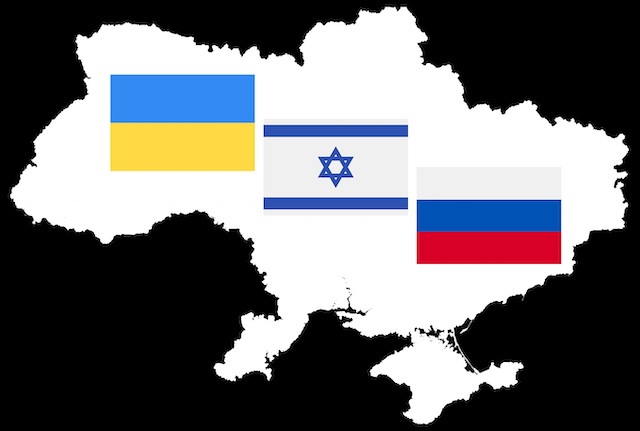
The Ukrainian people formalized an act of self-determination in 1990–1991, when the Declaration of State Sovereignty explicitly established that Ukraine is a sovereign national state and that the bearer of sovereignty in the Republic is the people of Ukraine.
At the same time, the Declaration had a dual structure: in the section “Self-determination of the Ukrainian Nation” the national-ethnic component was enshrined — the act of self-determination of Ukrainians and the establishment of Ukraine as a national state, while in the section “Popular Sovereignty” the civic component was set out, where the people of Ukraine were defined as the totality of all citizens of Ukraine of all nationalities.
The 1996 Constitution enshrined in Article 5 the provision that the people are the sole source of power and sovereignty, but without s ... Read more ⇢
Why Ukrainians Are Not Granted Refugee Status
Although temporary protection was originally designed as an emergency response to mass displacement, its implementation in the case of Ukrainians has resulted in a separate legal track — one that avoids the full recognition, obligations, and legal procedures associated with refugee status.
This could have been resolved through a single directive, using the same mechanism that introduced temporary protection, but aimed at simplifying access to refugee status.
In reality, however, Ukrainians are granted this status only in rare, exceptional cases.
Instead, the system is set up in such a way that applying for refugee status becomes so difficult, slow, and overwhelming that most people give up and accept temporary protection by default — often without even realizing they had another option.
The key difference between temporary protection and refugee status lies in the amount of information required for mandatory collection. To obtain full refugee status, one must not only verify their identity — in most cases, a passport is sufficient — but also provide ethnic ... Read more ⇢
Karaites and Krymchaks cannot be considered indigenous peoples of Ukraine
The recognition of the Karaites and Krymchaks as indigenous peoples of Ukraine contradicts Article 1 of the Law of Ukraine No. 1616-IX “On the Indigenous Peoples of Ukraine,” which stipulates that an indigenous people cannot have its own state-forming entity outside of Ukraine. This decision also fails to comply with international law. In particular, Article 33 of the United Nations Declaration on the Rights of Indigenous Peoples affirms the right of indigenous peoples to determine their identity and membership in accordance with their own customs and traditions, as well as to establish their institutions and determine their members.
This provision excludes the possibility of multiple ethnic identities and presupposes the integrity of legal subjectivity. Therefore, an ethnic group cannot simultaneously be recognized as a distinct indigenous people of Ukraine and as part of the Jewish people, which possesses its own nation-state.
The Karaites and Krymchaks do not meet the specified criteria, since under Israeli law they are recognized as part of the Jewish people and enjoy the right of repatriation to the State of Israel. This right directly demonstrates the exis ... Read more ⇢
"Safe Regions" of Ukraine as a New Form of Fascist Practice
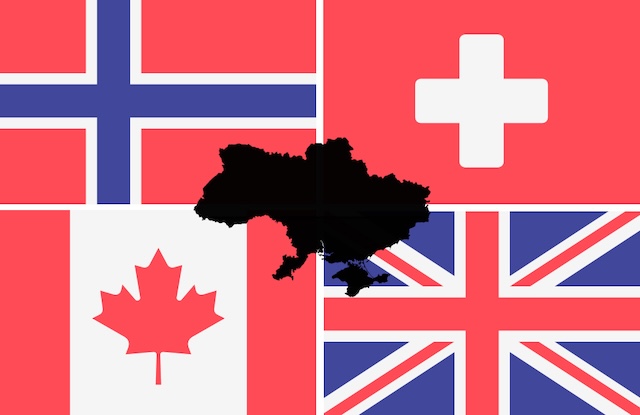
The policy of denying asylum to Ukrainian refugees under the pretext of “safe regions” in Ukraine ominously echoes the Nazi practice of the 1930s–1940s, when the fiction of “organized ghettos” and “reservations” justified the segregation, deportation, and extermination of Jewish populations. Ghettos like those in Warsaw or Łódź were presented as “safe” zones under Nazi control but served as instruments of isolation, repression, and preparation for the “Final Solution.” Neutral countries such as Switzerland were complicit, refusing Jewish refugees entry under formal pretexts, thereby legitimizing Nazi crimes.
Today, Norway, the United Kingdom, Switzerland, and Canada, by invoking the concept of “safe regions,” ignore the legal vacuum created by derogation and internal apartheid in Ukraine. This policy turns refugees from war victims into “voluntarily returned persons,” absolving states of responsibility for their fate.
... Read more ⇢
Apartheid of Ukrainians and the Hidden Interethnic Conflict
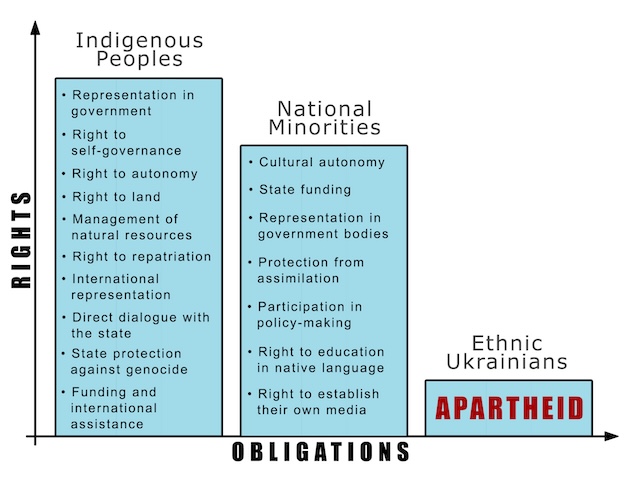
Under the cover of external aggression, a legal regime was established in Ukraine that exhibits features of institutionalized apartheid and interethnic conflict. The largest ethnic group — Ukrainians — has been stripped of status, collective rights, mechanisms of international protection, and even the possibility of legal self-preservation. These changes were deliberately enshrined in national legislation under martial law, indicating a conscious shift in focus from external threat to internal reconfiguration of the sovereign subject.
While formally appealing to the idea of national unity, the state manipulates the concept of “the people” by exploiting constitutional ambiguity between the collective sovereign and the totality of citizens. Depending on political expediency, the authorities arbitrarily alternate between these constructs, excluding Ukrainians from all forms of ethnically defined legal subjectivity. This subst ... Read more ⇢
Interethnic Conflict of Interests
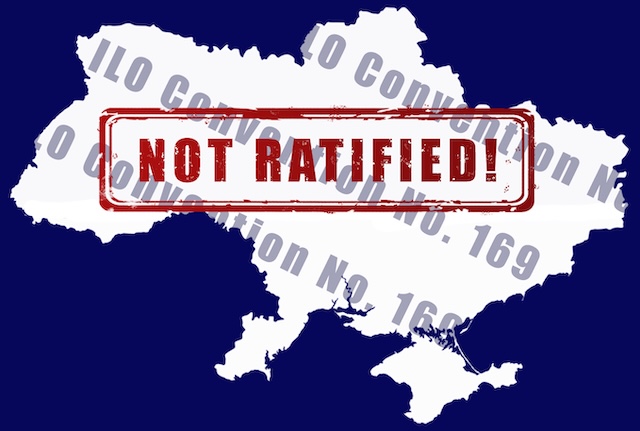
One of the clearest pieces of evidence demonstrating the formal and superficial nature of Ukraine’s Law No. 1616-IX “On Indigenous Peoples of Ukraine” is the fact that, during its adoption, the state employed terminology and rhetoric borrowed from the International Labour Organization’s Convention No. 169 — without actually ratifying the Convention. This creates a fundamental contradiction: Ukraine adopted the external framework of international law but refused to accept its binding obligations.
What is ILO Convention No. 169 and why is it essential?
It is the only universal international convention that protects the collective rights of indigenous peoples. Adopted in 1989, it is considered the principal legal instrument for safeguarding:
– the right to self-determination;
... Read more ⇢
Chronology of the Nullification and Displacement of Ethnic Ukrainians from Ukraine’s Legal Framework
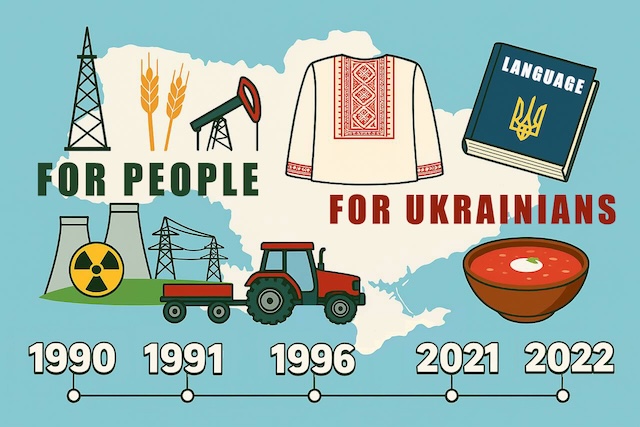
The fundamental misconception of the international community, including Ukrainians themselves, lies in the belief that cultural attributes were perceived as proof of the existence of a people. However, the right to speak the Ukrainian language is not equivalent to the status of a people in the legal sense.
For 21 years, from 1996 to 2021, Ukraine built a civic society in which the concept of “people” was interpreted universally — as the totality of citizens without ethnic distinctions.
But in 2021 the model of state organization was once again restructured — this time along ethnic lines. Certain groups received a legally enshrined status of “people” with all collective rights — to land, resources, self-government, and sovereignty. At the same time, ethnic Ukrainians were left only with language, borshch, and the vyshyvanka — cultural symb ... Read more ⇢
No People, no Duty - Why mobilizing Ukrainians may be a Crime
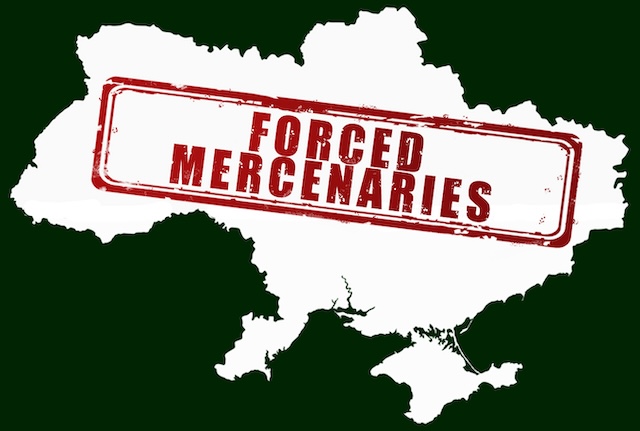
1. Linguistic and Legal Clarification
The Meaning of “Narod” in Slavic Traditions vs. “People” in Western Legal Culture
In Anglo-Saxon legal and constitutional traditions, the word “people” is semantically broad and historically flexible. It can refer both to the entire population of a country (“the people of France”, “the American people”) and to a sovereign political subject, endowed with authority and collective rights (“We the People” of the United States Constitution).
This semantic fusion emerged from the Enlightenment political philosophy of the 17th–18th centuries, in which sovereignty was transferred from monarchs to “the people” as an abstract political entity. The term became a legal placeholde ... Read more ⇢
What is Derogation — Protection from Expulsion, Deportation, and a basis for Asylum
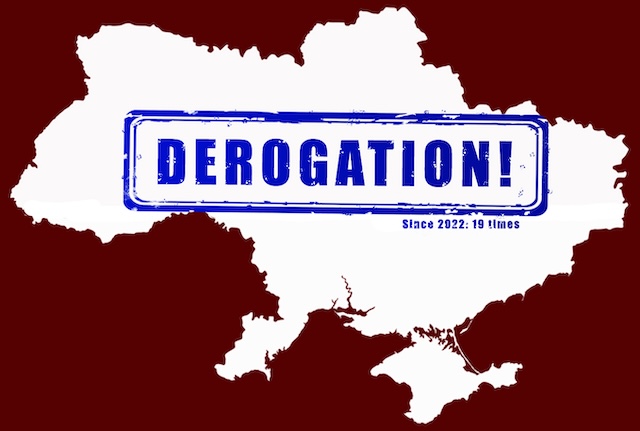
1. Derogation in International Law
Derogation is an official legal term that refers to the temporary suspension by a state of its obligations to protect human rights. It is applied in situations of war, a state of emergency, mass unrest, or another exceptional threat to the life of the nation. When a state declares a derogation, it notifies international organizations — such as the Council of Europe or the United Nations — that it is unable to fully comply with the rights enshrined, for example, in the European Convention on Human Rights (ECHR) or the International Covenant on Civil and Political Rights (ICCPR).
Such a suspension is regulated by:
• Article 15 of the European Convention on Human Rights (ECHR)
• Article 4 of the International Covenant on Civil and Political Rights (ICCPR)
A state that intro ... Read more ⇢
Exclusion of ethnic Ukrainians from the source of Ukraine’s sovereignty
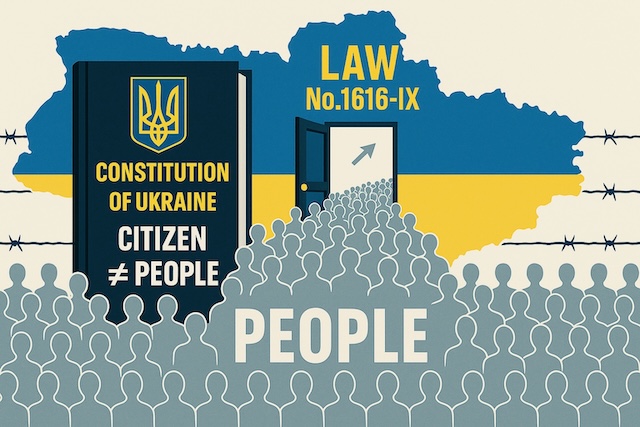
According to the Law of Ukraine No. 1616-IX “On Indigenous Peoples of Ukraine” dated July 1, 2021, ethnic Ukrainians are not included in the list of indigenous peoples. This law, introduced by President Volodymyr Zelensky as urgent, granted indigenous status to three ethnocultural groups — Crimean Tatars, Krymchaks, and Karaites — without any limitations regarding their population size, place of residence, or citizenship, extending their rights across the entire territory of Ukraine.
At the same time, the titular nation — ethnic Ukrainians — as well as autochthonous Ukrainian subethnic groups such as Boykos, Hutsuls, Lemkos, Volynians, Podolians, Slobozhans, and Polishchuks, were entirely excluded from the list of indigenous peoples and from the system of collective rights. None of these groups received legal recognition as a people, despite their deep historical rootedness, unique ... Read more ⇢
Evidence of the systematic Genocide of the Ukrainian people
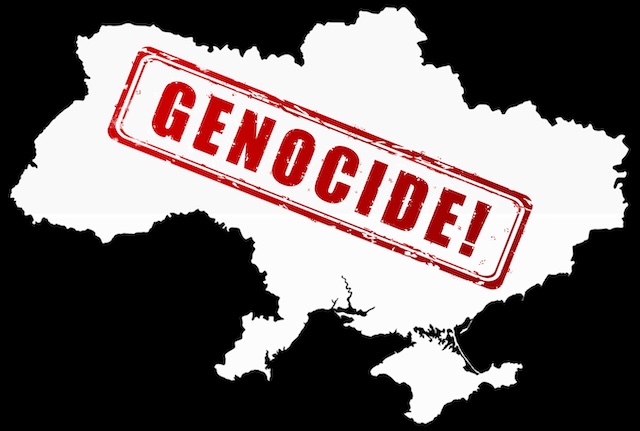 v1.2
v1.2
I. International Complicity in the Organization of Internal Terror in Ukraine
The European Union, the United States of America, the United Kingdom, Canada, Australia, Switzerland, Japan, and other donor states bear direct international legal responsibility for complicity in organizing large-scale internal terror on the territory of Ukraine. By continuing to provide multibillion-dollar unconditional funding to the Ukrainian regime in the context of official derogation from its human rights obligations, these states effectively ensure the uninterrupted operation of a repressive apparatus committing systematic international crimes.
Part of the donor countries’ funds is directed toward financing:
-
Forced mobilization of citizens, including elements of violence,
The war through the eyes of a Ukrainian - Legal arguments against State repressions
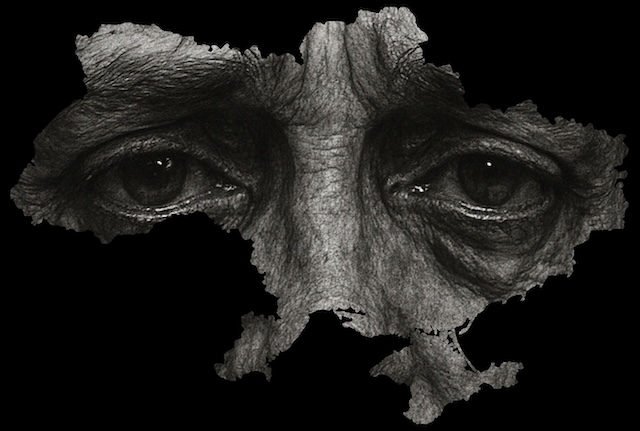
v4.7 - to be updated...
This document provides a comprehensive legal and factual analysis of systemic human rights violations and institutional repression in Ukraine between 2022 and 2025. Based on constitutional law, international treaties, and documented cases, it demonstrates how the Ukrainian government has employed selective conscription, suppression of dissent, and extrajudicial measures under undeclared state of war conditions. The report highlights the use of internal structures - including the Territorial Centers of Recruitment (TRC), the Security Service of Ukraine (SBU), and other state organs - to enforce coercive policies that undermine civil liberties, democratic governance, and legal protections.
The document is not written by a legal professional, but by a Ukrainian citizen directly affected by these policies. Its purpose is twofold:
(1) to raise awareness ... Read more ⇢
Legal justification of discrimination against Ukrainians through the Temporary Protection mechanism
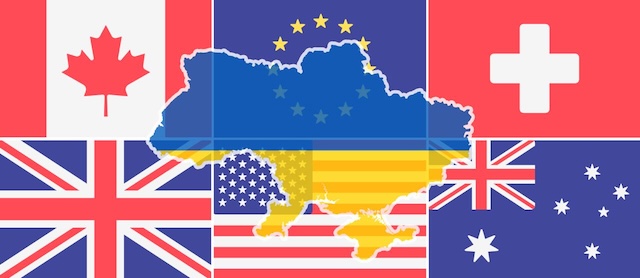
v.9.2 - to be updated...
1. Introduction
Ukrainians displaced by the war have not been granted refugee status under the 1951 Refugee Convention. Instead, they are placed under temporary protection frameworks, which lack long-term guarantees and legal security.
Although widely referred to as “refugees” in public discourse, their status does not legally qualify as such. They remain in alegal gray zone, where they are denied the full protections afforded by international refugee law.
1.1. Governments apply selective legal reasoning to justify this approach:
• When addressing legal obligations, they avoid classifying Ukrainians as refugees under the 1951 Refugee Convention, instead framing temporary protection as an emergency measure due to the unprecedented number of arrivals.
... Read more ⇢
Germany: The Unlawfulness of the Extradition of a Ukrainian Citizen Due to National and Gender-Based Discrimination
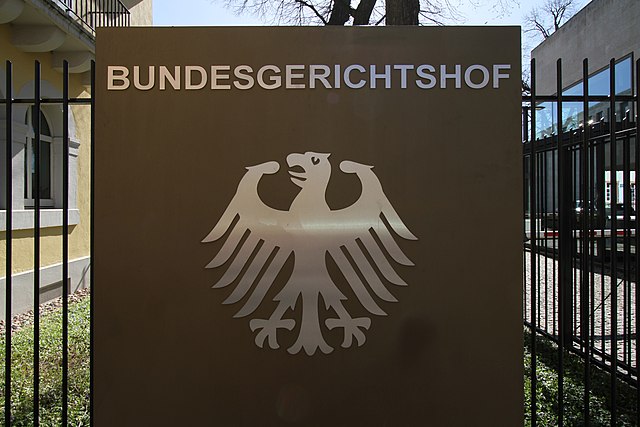
Photo by Gerd Eichmann, CC BY 4.0, via Wikimedia Commons.
The decision of the Federal Court of Germany (BGH) on January 16, 2025, permitting the extradition of a Ukrainian citizen despite his conscientious objection to military service, constitutes a clear case of national and gender-based discrimination. This decision violates international legal norms, particularly Article 14 of the European Convention on Human Rights (ECHR) and Article 26 of the International Covenant on Civil and Political Rights (ICCPR), both of which prohibit discrimination based on nationality and gender. Furthermore, the risk of forced conscription upon extradition raises serious concerns under Article 3 of the ECHR, which prohibits torture and inhuman or degrading treatment.
1. National Discrimination in the Application of Extradition Law
... Read more ⇢
Germany: Ukrainian refugees demand Alexander Dobrindt face trial for his discriminatory remarks and incitement of hatred
 Photo by CSU-Landesleitung, CC BY-SA 3.0 DE, via Wikimedia Commons
Photo by CSU-Landesleitung, CC BY-SA 3.0 DE, via Wikimedia Commons
Regarding the statements made by Alexander Dobrindt, head of the Christian Social Union (CSU) parliamentary group in the Bundestag, during an interview with Bild am Sonntag on June 23, 2024, it has been established that these statements contain elements of discrimination against Ukrainian refugees, violating their rights to protection and support in accordance with international law, national law, and the criminal law of Germany.
Factual Background
In his statement, Alexander Dobrindt proposed sending Ukrainian refugees back to their home country if they fail to find employment in Germany, despite the ongoing military conflict in Ukraine. He also criticized the payment of welfare benefits to refugees, claiming that guaranteed benefits slow down their job-seeking efforts.
This statement triggered sharp criticism from representatives of the Social ... Read more ⇢
The Silent Hunt on Ukrainians - A Crisis of Discrimination in the EU
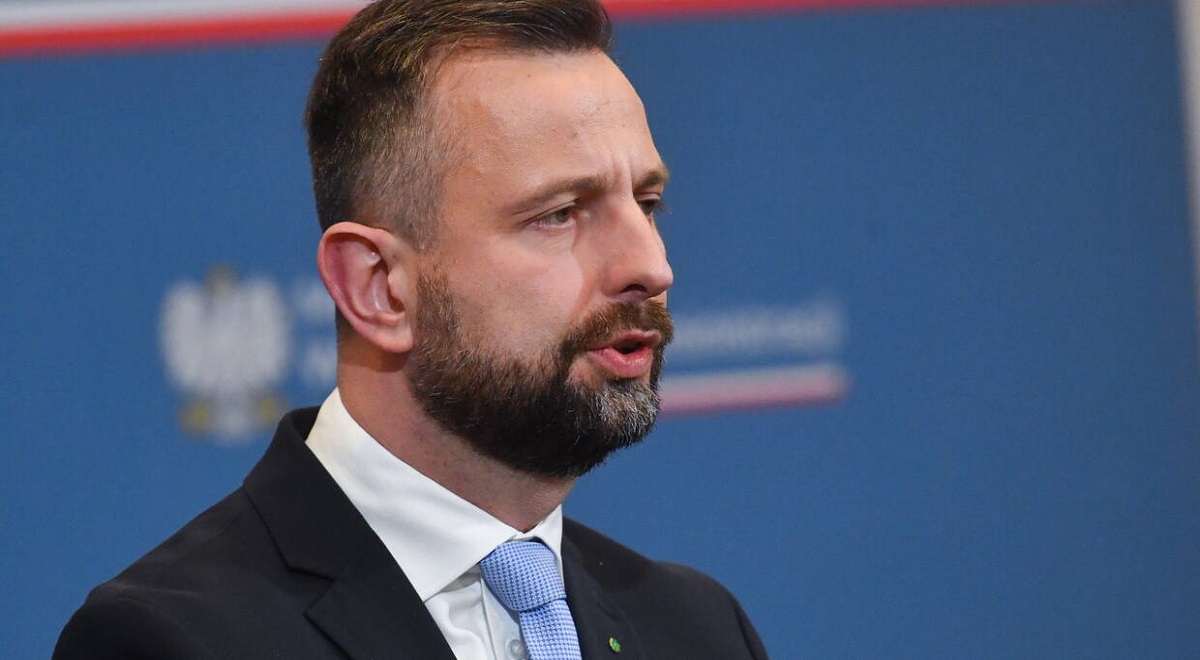
Władysław Kosiniak-Kamysz.
Photo: PAP/Piotr Nowak - the Deputy Prime Minister of Poland and the Minister of National Defence
It is crucial to acknowledge the differential treatment between various national groups. Notably, while Poland and Lithuania have pledged to assist in the repatriation of Ukrainian men subject to military draft, thereby recognizing their vulnerable status, the broader policies enacted by the EU fail to protect these same individuals under the established norms of international refugee law. This selective enforcement contravenes Article 14 of the Universal Declaration of Human Rights, which guarantees the right to seek and enjoy asylum from persecution, as well as the non-refoulement principle enshrined in the 1951 Refugee Convention.
Moreover, the contrasting responses of the European Union to the restrictive ... Read more ⇢
Sweden: Elaf Ali’s Remarks on Ukrainian Refugees Incite Outrage and Accusations of Discrimination
On Swedish State Television, during the program “IFS - Invandrare för Svenskar” on the national channel SVT, journalist Elaf Ali made a controversial joke about Ukrainian women who have sought refuge in Sweden.
Ali quipped,
“They’re blond and blue-eyed, so their presence is hardly noticeable, except maybe in the brothels.”
Source: Visegrád 24
This remark was made in the context of a segment intended for humor.
Elaf Ali’s derogatory comments about Ukrainian refugees, specifically women, on Swedish State Television raise significant legal concerns, potenti ... Read more ⇢Slovakia: Refugees subject to conscription laws should go to Ukraine to fight - Robert Kaliňák

Photo: Jaroslav Novák/TASR
Refugees subject to Ukrainian conscription laws should go to fight in Ukraine. Slovak Defense Minister Robert Kaliňák said this in the V politike talk show. According to the head of defense, there is no need to send NATO soldiers to the territory of Ukraine.
"Of all the refugees we are protecting, (…) there is a group that corresponds to the Ukrainian conscription law," Kaliňák said in the talk show, saying that he thinks it is "the biggest help to the Ukrainian army if it has enough people."
Source:standard.sk
A potential legal violations in the statement suggesting that Ukr ... Read more ⇢
Ukrainian National Bar Association is a Private Entity
Regarding the inquiry contained within Part I, Question 178 of the European Union (EU) Questionnaire and Responses for Ukraine’s Candidacy Status:
“Does Ukraine possess a National Human Rights Institution (NHRI)? Is it in compliance with the Paris Principles concerning NHRIs, and does the NHRI hold accreditation from GANHRI, including its accreditation status?”
Ukraine’s response elucidates that the sole human rights body operational within the nation is the Human Rights Ombudsman.
There is an absence of a legal advocacy institution as delineated in the disclosed questionnaire, which raises certain implications.
The Ukrainian Bar is a non-governmental, self-governing institution tasked with ensuring the provision of defense, representation, and other forms of legal assistance on a professional basis. Furthermore, it autonomously addresses matters concerning the organization and function of the legal profession in accordance with established legal statutes.
... Read more ⇢
Germany: Defaming the Displaced - Ulrich Reitz’s Troubling Attack on Ukrainian Refugees
The remarks made by Ulrich Reitz have sparked debate over the potential infringement of various national and international legal principles, particularly those related to the equal treatment of refugees and anti-discrimination. Titles that might reflect the legal and ethical concerns raised by Reitz’s statement could include:
German Laws:
... Read more ⇢
Poland: General Skrzypczak talks about help in "deporting Ukrainians" from Poland
 Photo. Dawid Żuchowicz / Agencja Wyborcza.pl
Photo. Dawid Żuchowicz / Agencja Wyborcza.pl
"The Polish government should help Kiev in the deportation of Ukrainians who are in exile - said General Waldemar Skrzypczak. The Ministry of Foreign Affairs referred to this idea. "We are considering how we can support the Ukrainian side" - said the Ministry of Foreign Affairs..."
Source: gazeta.pl
General Waldemar Skrzypczak’s statements suggesting that the Polish government should assist in the deportation of Ukrainian refugees potentially violates the principle of non-refoulement, which is a fundamental aspect of international refugee law as established by the 1951 Refugee Convention and its 1967 Protocol. This principle strictly prohibits the forced return of refugees to countries where they ... Read more ⇢
Uncompensated Material and Non-Pecuniary Damages
The head of the state does not take adequate measures to restore the housing of Ukrainian citizens who were forced to move from occupied territories or areas where combat operations are conducted, as well as those who have lost their homes and other property due to the occupation.
Many Ukrainian citizens have relatives left in the occupied territories who require assistance and protection, yet the state takes no action to protect them and does not allow family reunions by prohibiting movement across the demarcation line with the occupied territories.
As a result of rights violations, Ukrainian citizens suffer both moral and material damage.
Moral harm is recognized as suffering inflicted on a citizen due to physical or psychological impact, leading to a deterioration or loss of opportunities to engage in their usual habits and desires, worsening relationships with others, and other negative moral consequences.
Compensation for moral harm is made in cases where unlawful actions by state bodies have inflicted moral loss on a citizen, led to the disruption of normal life connections, and req ... Read more ⇢
Avoidance of Responsibility by National Leadership
The leadership of the country is objectively suspected of embezzling property, that is, resources belonging to the citizens of Ukraine.
In 2023, with the assistance of parliament, the possibility was introduced to apply probationary supervision as a new form of punishment instead of imprisonment for individuals found guilty of abusing their official position, giving bribes, and bribing officials of private legal entities. In effect, such individuals would not face actual punishment.
Furthermore, one of the most frequently applied categories in the economic sphere is the composition of fraud as a criminal offense.
In Ukrainian judicial practice, for many cases of bribery, corruption, and official crimes, the criminal law provided by Article 190 of the Criminal Code of Ukraine (fraud) is applied, as it can be demonstrated in court that the corrupt individual did not act as an official.
On August 11, 2023, a law came into effect amending Article 190 of the Criminal Code of Ukraine. According to this, part 4 of the said article was renamed as part 5.
... Read more ⇢
Ukrainian Courts and the Controversy Over Border Exit Rights
Ukrainian administrative courts are systematically denying Ukrainian citizens satisfaction in lawsuits challenging the decisions of military personnel of the State Border Guard Service of Ukraine on the temporary restriction of their rights as Ukrainian citizens to leave Ukraine; the recognition as illegal and the annulment of their decisions to deny crossing the state border of Ukraine, and the obligation for them to provide Ukrainian citizens with permissions to cross the state border of Ukraine on a permanent basis according to the law, based on the passport of a citizen of Ukraine for foreign travel.
The basis for the refusal to satisfy the claim, as stated in the court decision, is that the court considers that the Rules for Crossing the State Border by Citizens of Ukraine, approved by the resolution of the Cabinet of Ministers of Ukraine No. 57 dated 17.01.1995 (hereinafter also referred to as the Rules), establish that in cases defined by legislation, for crossing the state border, citizens must also present supporting documents in addition to passport documents. According to the court’s conclusion, my right to leave the country was limited by specific provisions of the Rules for Crossing the State Border by Citizens of Ukraine. ... Read more ⇢
Breach of the Separation of Powers Doctrine
The separation of state power is the structural differentiation of three coequal primary functions of the state: legislative, executive, and judicial. It reflects the functional definiteness of each state organ, entails not only the demarcation of their powers but also their interaction, a system of mutual checks and balances aimed at ensuring their cooperation as a single state authority.
The principle of the separation of state powers only becomes meaningful under the condition that all state authorities act within a unified legal field.
This means that the legislative, executive, and judicial branches exercise their powers within the limits established by the Constitution of Ukraine and in accordance with the laws of Ukraine (Part Two of Article 6 of the Constitution).
State authorities and local self-government bodies, and their officials are obliged to act only on the basis, within the limits of the powers, and in the manner provided by the Constitution and laws of Ukraine (Part Two of Article 19 of the Constitution of Ukraine).
... Read more ⇢
Justice Undermined by Ukraine's Supreme Court Abolition
In Ukraine, the actions of unlawful judicial authorities fail to protect the rights and legitimate interests of citizens.
During the judicial reform of 2016, the Supreme Court of Ukraine was abolished. A new Supreme Court was established in its place through a separate competition. The authors of the reform intended this process to purge the highest judicial body of corrupt judges. The parliament amended the Constitution and changed the name of the institution from “Supreme Court of Ukraine” (SCU) to simply “Supreme Court” (SC).
In February 2020, the Constitutional Court issued a decision declaring the abolition of the SCU unconstitutional and called on the parliament to immediately rectify the situation. This decision recognized the abolition of the Supreme Court of Ukraine and the provisions on lower amounts of lifetime financial support for retired judges who did not pass the qualification assessment as unconstitutional.
The European Court of Human Rights (ECHR) in case No. 11423/19 “Gumenyuk and others vs. Ukraine” concluded that the abolition of the Supreme Court of Ukraine during the 2016 judicial reform was unlawful, as stated in ... Read more ⇢
Discrimination Against Ukrainian Citizens Abroad
Ukrainian authorities and officials within the European Union are accusing thousands of Ukrainian men of crimes stipulated by Article 366 of the Criminal Code of Ukraine (evasion from mobilization) without having sufficient grounds for such accusations, as they lack information that these individuals are sought for committed crimes. Consequently, they predispose local citizens of the EU against Ukrainian men, which may lead to illegal actions against Ukrainians who are refugees in other countries.
They assert that Ukrainians should return and fight for their families, thereby unequivocally proposing to discriminate against men. This constitutes discrimination on the basis of gender.
Article 14 of the Convention for the Protection of Human Rights and Fundamental Freedoms (Rome, 4.XI.1950) prohibits discrimination. The enjoyment of the rights and freedoms recognized in this Convention must be secured without any discrimination on any ground such as sex, race, color of skin, language, religion, political or other beliefs, national or social origin, association with a national minority, property status, birth, or any other status.
... Read more ⇢
The Aggressive Curtailment of Conscription Exemptions in Ukraine
Thus, the Law of Ukraine “On Mobilization Preparation and Mobilization” was amended in 2005 with Article 23, during Ukraine’s first revolution (Orange Revolution), to include, among others, the right for members of the Ukrainian parliament and deputies of the Supreme Council of the Autonomous Republic of Crimea to defer conscription during mobilization.
In 2014, following the second revolution (Euromaidan), the aforementioned article was supplemented with a new section according to Law No. 1575-VII of July 3, 2014, establishing that full-time students are also exempt from conscription for military service during mobilization and special periods.
In 2022, following a large-scale invasion, the article was further amended to exempt individuals with a spouse with disabilities and/or one of their parents or the spouse’s parents with a disability of group I or II from conscription during mobilization (paragraph eleven of part one of Article 23 in the version of Law No. 2122-IX of March 15, 2022).
However, in 2023, the rights granted were narrowed, and individuals with a spouse with a disability and/or one of their parents or the spouse’s parents w ... Read more ⇢
The Egregious Curtailment of Free Movement in Ukraine
By Resolution No. 724 of the Cabinet of Ministers of Ukraine dated August 25, 2010, amendments were introduced to paragraph 4 of point 2 of the Rules for the Crossing of the State Border by Citizens of Ukraine, previously approved by its Resolution No. 57 dated January 27, 1995.
According to the aforementioned amendments, it was established that “In cases determined by legislation, for crossing the state border, citizens must also have supporting documents in addition to passport documents.”
Thus, the government had preemptively taken certain actions by adopting Resolution No. 724 dated August 25, 2010, which limited the existing scope of rights of Ukrainian citizens to cross the state border of Ukraine, and this was later utilized in 2022.
In 2022, continuing its unlawful actions aimed at narrowing the rights of Ukrainian citizens, the government introduced additional amendments to the Rules for the Crossing of the State Border by Citizens of Ukraine, approved by Cabinet of Ministers Resolution No. 57 dated January 27, 1995, specifically by adopting point 2-6 of these Rules, ... Read more ⇢
The Sole Authority to Restrict Rights in Ukraine
The Constitutional Court of Ukraine, in its decision No. 10-r/2020 dated August 28, 2020, stated that “the restriction of constitutional rights and freedoms of a person and citizen is possible only in cases defined by the Constitution of Ukraine. Such restriction can only be established by law – an act adopted by the Verkhovna Rada as the sole legislative authority in Ukraine. Establishing such a restriction by a subordinate legal act contradicts Articles 1, 3, 6, 8, 19, 64 of the Constitution of Ukraine” (paragraph 3.2 of the reasoning part of the Decision of the Constitutional Court of Ukraine dated August 28, 2020, No. 10-r/2020).
The Constitutional Court of Ukraine clarified that, according to paragraphs 41 and 45 of the Report “Rule of Law,” approved by the European Commission “For Democracy through Law” (25-26 March 2011), the elements of the rule of law include: legality, including a transparent, accountable, and democratic process of enacting legal provisions; legal certainty; prohibition of arbitrariness; access to justice, represented by independent and impartial courts, including those exercising judicial oversight over administrative activity; respect for human rights; prohibition of ... Read more ⇢
Navigating Border Regulations - Document Requirements for Ukrainians
Article 3 of Ukraine’s “Law on the Procedure for Departure from and Entry into Ukraine by Ukrainian Citizens” sets forth a straightforward principle: Ukrainian citizens should cross the state border at designated points, armed with the requisite documents enumerated in Article 2. This provision ensures a structured and lawful framework for international travel.
However, Regulation No. 57 introduces a murky area during martial law periods, failing to explicitly mandate additional documentation for men, thereby creating a loophole that undermines the clarity and intent of the law. Moreover, the regulation ambiguously skirts around the issue of whether Ukrainian males aged 18 to 60 are outright forbidden from exiting Ukraine during martial law, leaving room for arbitrary enforcement and potential misuse of power.
Paragraph 2 of the Rules attempts to clarify the procedure for crossing the state border, emphasizing the necessity of presenting legally sanctioned documents, such as a passport for international travel. The law underscores that any supplementary document requirements must be transparently stipulated within the legislative texts. Yet, the ambig ... Read more ⇢
Decoding Ukraine’s Law on Citizens’ Exit Rights
The Preamble of the Law of Ukraine No. 3857-XII dated January 21, 1994, “On the Procedure for Departure from Ukraine and Entry into Ukraine of Ukrainian Citizens,” states:
“This Law regulates the procedure for exercising the right of Ukrainian citizens to depart from Ukraine and enter Ukraine, the procedure for processing documents for foreign travel, determines the cases of temporary restriction of citizens’ right to depart from Ukraine, and establishes the procedure for resolving disputes in this sphere.”
Article 1 of the Law establishes that a citizen of Ukraine has the right to depart from Ukraine, except in cases provided for by this Law, and to enter Ukraine.
Thus, the above provision establishes that only this Law, and not any other normative legal act (presidential decree, government resolutions, other laws, directives, and letters from the h ... Read more ⇢
The Illegal Restriction of Movement by State Officials
State officials in Ukraine are engaged in a blatant disregard for constitutional rights, notably violating Article 33 of the Ukrainian Constitution, which unequivocally guarantees every individual within Ukraine’s territory the freedom of movement, the free choice of residence, and the unrestricted right to leave the country, subject only to legal restrictions. In a grave overstep, these officials are enforcing subordinate regulations—namely, the Rules for crossing the state border established by the Cabinet of Ministers of Ukraine under Law No. 3857-XII—which, not being laws themselves, starkly contradict the Constitution, the Law of Ukraine, and the stipulations of international treaties.
This overreach is further compounded by the military command’s misuse of their authority to limit citizens’ movements, an authority that should be strictly defined by the Cabinet of Ministers of Ukraine as outlined in point 6 of part 1 of Article 8 of the Law “On the Legal Regime of Martial Law”. The “Procedure for establishing a special regime of entry and exit, restriction of the freedom of movement of citizens, foreigners, and stateless persons, as well as the movement of vehicles in Ukraine or in its ... Read more ⇢
Military Command’s Egregious Violations Under Martial Law
In a blatant defiance of the legal framework set by Law 389-VIII, “On the Legal Regime of Martial Law,” dated May 12, 2015, the military command has engaged in egregious overreaches that starkly violate the constitutional rights of Ukrainian citizens. This law, which specifies the conditions under which martial law may be invoked, clearly limits the scope of temporary restrictions on rights and freedoms to those expressly outlined by presidential decree and ratified by the Verkhovna Rada of Ukraine.
Contrary to these legal stipulations, the military command has usurped powers not granted to them, notably by imposing unwarranted restrictions on citizens’ freedom to move and cross borders. Such actions blatantly contravene the directives of Article 3, Section 2, and point 6 of part 1 of Article 8 of Law 389, which confine military authority to specific measures such as establishing special entry and exit regimes within Ukraine, as detailed by the Cabinet of Ministers of Ukraine No. 1455 resolution dated December 29, 2021.
This unauthorized assertion of power by the military at border crossings is a clear infringement of the Law of Ukraine “On the Procedure for Exit from Ukraine and Entry into Ukraine of ... Read more ⇢
The Misguided Judicial Support for Unlawful Restrictions
Article 106 of the Ukrainian Constitution clearly delineates the powers vested in the President of Ukraine, notably omitting any authority to curtail citizens’ rights, even amidst the enactment of martial law. Despite this constitutional limitation, Ukrainian courts have erroneously upheld Presidential Decree No. 64/2022, dated 24 February 2022, “On the Imposition of Martial Law in Ukraine,” as a basis for restricting the fundamental right of citizens to freely exit the country during martial law periods.
Such interpretations grossly exceed the constitutional framework, as it is unequivocally impermissible under Ukrainian law to introduce amendments or new regulations that impose restrictions on the freedom of citizens to leave the country that are more stringent than those existing at the time of the Constitution’s enactment in 1996.
The constitutional and legal landscape of Ukraine does not permit the amendment of the Law of Ukraine “On the Procedure for Exit from Ukraine and Entry into Ukraine for Ukrainian Citizens” or the enactment of other regulatory legal acts to unjustly narrow the pre-established right of Ukrainian c ... Read more ⇢
Unlawful Discrimination in Times of Martial Law
Despite the clear directives of Part 2 of Article 64 and Article 24 of the Constitution of Ukraine, which mandate the equality of all citizens and prohibit any restrictions on constitutional rights and freedoms based on gender, social, or economic status, even during martial law, Ukrainian authorities have instituted discriminatory practices that starkly contravene these constitutional provisions.
Article 24 emphatically asserts the principle of equality before the law, explicitly forbidding any form of discrimination, including on the grounds of gender or social origin. Yet, in a blatant disregard for these constitutional safeguards, Ukrainian policies during martial law have unjustly targeted men aged 18 to 60, along with those outside the echelons of state leadership, imposing on them undue restrictions on their right to exit the country.
This selective enforcement of travel restrictions not only violates the Constitution of Ukraine but also undermines the very principles of equality and justice that form the bedrock of a democratic society. The imposition of such discriminatory measures based on gender and social status is a direct affront to the rule of l ... Read more ⇢
Grave Violation of Constitutional Rights by Ukrainian Athorities
State officials and the judiciary in Ukraine are engaging in a flagrant violation of the Constitution by failing to uphold the unequivocal mandates of Article 22, which solemnly guarantees the inviolability of constitutional rights and freedoms. This article explicitly states that no new law or amendment can curtail the breadth and depth of the existing rights and liberties afforded to Ukrainian citizens.
The government’s enactment of subordinate legislative acts that diminish these rights further exacerbates this breach of constitutional duty, directly contravening the legal principle that no legislative change should ever infringe upon the established freedoms of the populace.
Current Ukrainian legislation categorically prohibits any modification to laws that would unjustly impose additional constraints on the citizens’ inherent freedom to exit the country or evade conscription during periods of mobilization, as previously delineated by law.
The situation is further aggravated by pervasive discriminatory practices sanctioned by the state, in clear violation of Part 2 of Article 64 and Article 24 of the Constitution of Ukraine. These articles enshrine t ... Read more ⇢
Abuse of Military Power - Violating Citizens’ Rights in Ukraine
In a flagrant violation of constitutional law, military entities such as the Armed Forces of Ukraine, State Border Guard Service of Ukraine, National Guard of Ukraine, and others, along with state and judicial bodies and their officials, are systematically infringing upon the rights and freedoms of Ukrainian citizens, directly contravening Article 17 of the Constitution of Ukraine. This article explicitly prohibits the use of military formations to restrict citizens’ liberties.
Despite the clear mandate in Article 1 of the Law of Ukraine on the Armed Forces of Ukraine, which obligates military administrative bodies to uphold the constitutional ban against employing the Armed Forces to curtail civil rights, there exists a pervasive pattern of rights violations orchestrated by the military. These include unauthorized detentions at borders, prevention of citizens’ departures, arbitrary street detentions, and illicit confinements within so-called mobilization and social support centers - Territorial Center for Recruitment and Social Support.
Such actions not only defy the Constitution but also transgress criminal law, as delineated in Part 3 of Article 371 and Part 3 of Article 146 of the Criminal Code of Ukraine. These articles pre ... Read more ⇢
The Deliberate Disregard for International Treaty Rules
Ukrainian courts are engaging in a deliberate and egregious violation of international law by systematically ignoring the rights enshrined in significant international treaties to which Ukraine is unequivocally bound. The blatant disregard for Protocol No. 4 to the Convention for the Protection of Human Rights and Fundamental Freedoms, ratified under Ukrainian Law No. 475/97-VR on 17 July 1997, which unequivocally grants individuals the right to leave any country, is a stark testament to the judiciary’s neglect of its legal obligations.
This flagrant oversight is compounded by the courts’ failure to uphold Article 12 of the International Covenant on Civil and Political Rights, ratified by Decree No. 2148-VIII on 19 October 1973, which similarly safeguards the freedom of movement. The judiciary’s neglect of this critical provision further exposes a deep-seated contempt for Ukraine’s international commitments.
The disregard extends to Article 13 of the Universal Declaration of Human Rights, a cornerstone of global human rights adopted on 10 December 1948, which guarantees freedom of movement and residence. The Ukrainian judiciary’s ... Read more ⇢
Martial Law vs. State of War - Legal Distinctions and International Recognition
From a legal standpoint, the concept of “martial law” is more thoroughly delineated within Ukraine’s “Law on the Legal Regime of Martial Law” compared to the vague treatment of a “state of war” in the “Defense of Ukraine Law.” The crucial distinction rests on international acknowledgment of Ukraine being in a state of war, a status vital for rectifying breached human rights. Yet, the Ukrainian government’s failure to formally recognize a state of war with the Russian Federation has left Ukraine and Russia in a de facto state of peace. This omission blocks the path to formally concluding the war, achieving peace, and significantly, robs Ukrainian citizens of the chance to reclaim their rights and seek reparations for the war’s toll from Russia.
The imposition of martial law in Ukraine has led to curtailed citizen rights, with far-reaching implications for Ukraine’s diplomatic engagements, notably hindering Ukrainian citizens’ prospects of obtaining reparations from Russia through international legal channels.
Currently, in the eyes of international legal bodies, from the UN to various arbitration panels, the conflict is not recognized as a war. There exists a state of ... Read more ⇢
Presidential Negligence in Ukraine’s Pre-War Crisis
According to Article 106, Section 20 of the Constitution of Ukraine, the President, in accordance with the law, decides on general or partial mobilization and the imposition of martial law in Ukraine or in its specific areas in the event of a threat of aggression, danger to the state independence of Ukraine.
Pursuant to the provisions of Article 1 of the Law of Ukraine “On the Legal Regime of Martial Law” of December 12, 2015, No. 389-VIII, martial law is a special legal regime introduced in Ukraine or in its specific areas in the event of armed aggression or the threat of attack, danger to the state independence of Ukraine, its territorial integrity, and involves granting the relevant state authorities, military command, military administrations, and local self-government bodies the powers necessary to prevent the threat, repel armed aggression, and ensure national security, eliminate the threat to the state independence of Ukraine, its territorial integrity, as well as the temporary restriction of the constitutional rights and freedoms of individuals and citizens and the rights and lawful interests of legal entities with the indication of the duration of these restrictions.
... Read more ⇢
Estonia: Member of the European Jaak Madison called Ukrainian refugees cowards
On MEP Jaak Madison egregiously slandered Ukrainian refugees during a European Parliament session, labeling them as “cowards” for seeking sanctuary from mobilization and baselessly accusing them of violating Ukrainian law.
Such statements not only exhibit a profound disrespect for the individuals fleeing conflict but also represent a flagrant violation of international and European Union legal standards governing the treatment and rights of refugees:
1. Geneva Convention on Refugees:His derogatory characterization of refugees directly undermines the fundamental tenets of the 1951 Refugee Convention and its 1967 Protocol, which mandate the protection and humane treatment of individuals fleeing persecution. His remarks are an affront to the very essence of international refugee law.
2. Dublin Regulation of the European Union:
By disparaging refugees, Mr. Madison shows a blatant disregard for the EU’s structured process under the Dublin Regulation, which ensures the dignified and fair handling of asylum a ... Read more ⇢
Austria:Affidavit of Rights Infringement of Ukrainians
On August 21, 2023, at 16:29, an article was published on the website of the Austrian media outlet eXXpress (https://exxpress.at/flucht-vor-der-front-14-000-ukrainer-im-wehrfaehigen-alter-in-oesterreich/) by the editor, which criticized the flight of male ambassadors from Ukraine and incited hostility towards Ukrainians in Austria based on national origin, urging Ukrainians to return to Ukraine and fight, and even promoting discrimination based on gender, age, and nationality.
The article cited statistics and referenced Ukrainian government officials, specifically President Volodymyr Zelensky and the Ukrainian Ambassador to Austria. The editor claimed to have received the statistics from the Austrian Ministry of the Interior, which allegedly has precise data on the age of Ukrainian refugees registered in Austria, including the number of men and their age group. The article highlighted that 25% of the refugees are men aged between 18 and 54.
Furthermore, the editor personally claimed that a significant number of Ukrainian men of conscription age have managed to avoid combat at the front, with 14,000 Ukrainian men aged between 18 and 54 registered as displaced ... Read more ⇢


